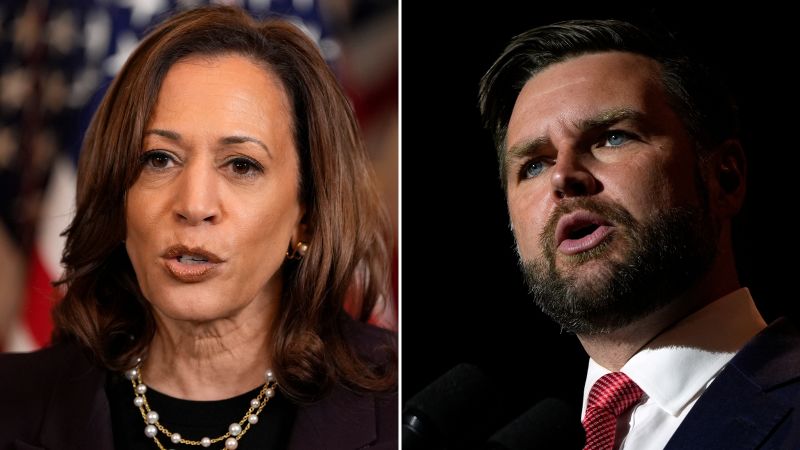Kamala Harris is using JD Vance as a major liability in her campaign as the presumptive Democratic nominee. Despite Vance’s limited government experience, Harris’s team is highlighting his lack of qualifications in comparison to her own shortlist of potential running mates. They are emphasizing that Vance should not be a heartbeat away from the presidency, particularly in light of Trump’s age, to raise doubts about the top of the ticket. The strategy is aimed at challenging the double standard Republicans are perceived to hold when criticizing Harris as a “DEI hire.”
Vance’s controversial comments about women, his changing views on Trump, and his limited government experience are being used by Harris’s team to question his ability to hold the vice presidency. They argue that Vance lacks the necessary qualifications, leadership experience, and preparedness to potentially run domestic and national security policy for the United States. Harris and her team are comparing Vance to candidates on her own shortlist who have more experience in government, business, and the military, to highlight the contrast in qualifications.
Several potential Democratic picks for Harris’ running mate have criticized Vance for his lack of consistency, experience, and qualifications. They argue that the other candidates are more experienced and have served in public office for longer periods without wavering on key issues. Buttigieg, for example, points out that Vance’s limited executive experience and lack of consistency are valid concerns in considering him for the vice presidency. Trump’s camp, on the other hand, supports Vance as the best choice for vice president and criticizes Harris as an unserious candidate with a poor record serving as Biden’s border czar.
Former Attorney General Eric Holder is supervising the official vetting process for Harris’ potential running mates, but the final decision-making is kept within a tight circle around the vice president. Harris, drawing on her experience as a candidate four years ago, is focused on selecting a running mate who can help her win the election, unify the party, protect freedoms, and fight for the future of the American people. The vetting process involves a deep consideration of the contenders’ previous positions and actions, resilience, readiness to serve, and overall ability to support Harris in the challenging role of vice president.
The age and health of Trump, who is now the older candidate without Biden in the race, are being questioned by Harris’s team. They highlight the potential risks in picking someone like Vance, who lacks experience and qualifications, as a running mate for an older candidate. Comparisons are drawn to past instances, such as John McCain’s choice of Sarah Palin in 2008, to illustrate the potential consequences of selecting an inexperienced candidate for a high-stakes position. In response, Trump’s camp emphasizes competence over age and defends Vance as a suitable candidate for the vice presidency.
Questions about Trump’s judgment and Vance’s readiness for the vice presidency are raised by Democrats as they focus on the importance of selecting a qualified running mate, particularly given concerns about Trump’s health and age. The selection process for Harris is guided not only by the candidates’ resumes but also by their ability to handle the responsibilities of the role under intense scrutiny and pressure. With an emphasis on unity, winning the election, and serving the American people, Harris is carefully considering her options to ensure that she picks a qualified and capable running mate.













